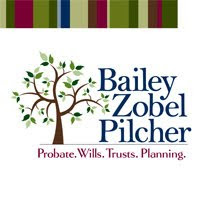On more than one occasion a friend of mine in my neighborhood or at church has come up to me and asked a question something like this, “David, do I really need a will? I don’t actually have very much and it seems like a lot of money to spend just to get some papers written up.” After I ask a few questions about their circumstances, in about half of these situations I discover that they have already done something, usually on advice from a non-attorney, and the individual is really wondering whether or not they have done the right thing. They’ve engaged in a course of action designed to lead to what some call a “Poor Man’s Probate” and the results, which they will probably never witness, are usually not at all what they would want for their survivors.
Here are some of the things I’ve seen:
A deed, usually a quit claim, has been recorded adding a child or children as owners.
A child or children have been added as co-owners of bank or investment accounts.
A life insurance policy has been purchased naming a minor child as a contingent beneficiary.
A life insurance policy has been purchased naming a grandparent as a contingent beneficiary. because the grandparent will look after the minor children.
Can you see the problems presented above? Here are just a few I spotted, and I’m not saying this list is exhaustive.
Quit claim deeds wipe out title insurance policy guarantees. If a boundary dispute pops up the title insurance company will look at the current ownership and will be excused from liability because the current owners aren’t the ones they promised to protect.
Florida’s strong homestead protection laws will protect you from various creditor claims, but if a judgment is entered against your child who has an interest in your homestead, a cloud will be created on title to the property which could make it difficult to sell.
Your bank or investment account could be garnished in order to meet obligations created by a judgment against your child.
If you and your spouse both die in an accident, life insurance death benefits will need to be put into a guardianship for your minor child. Who will be the guardian? Will they be a good steward of those funds? Will your child be emotionally ready to receive a large sum of money at the age of 18 when unfettered access to the funds will be given?
What if you forget to change the insurance policy beneficiary when your parent, the grandparent of your children, has a stroke, then you and your spouse both die in an accident. The death benefit is paid to your parent whose guardian has a statutory duty to use those funds for your parent’s benefit, not the benefit of your children. Worse still, if your parent has remarried and the proceeds go into a joint account with the new spouse, then the new spouse will have a claim on those funds.
All of these results are bad. Some are truly disastrous. All of them would cost far more to unravel than it would cost to make proper plans.
The basic documents we recommend are a will (or better yet a trust with a pourover will), a durable power of attorney, health care surrogate designation, and living will. If your funds are extremely limited just get the durable power of attorney, health care surrogate designation, and living will. One solution does not fit all needs and so we carefully interview people to find out what their particular needs are and what solution best fits them, but don’t make the very costly mistake of thinking that no planning or ad hoc planning are the solutions to your estate planning needs.
David Pilcher


No comments:
Post a Comment